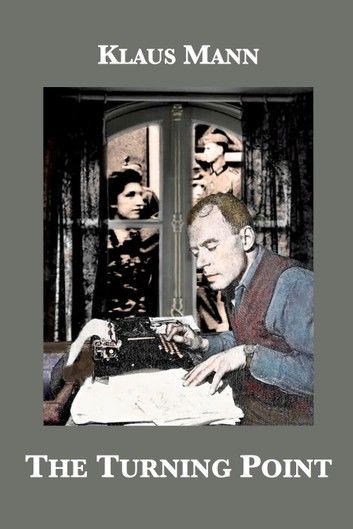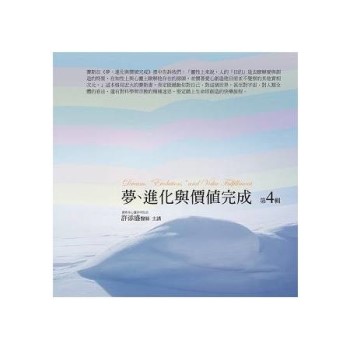| FindBook |
有 1 項符合
The Turning Point: Thirty-Five Years in this Century, the Autobiography of Klaus Mann的圖書 |
 |
The Turning Point: Thirty-Five Years in this Century, the Autobiography of Klaus Mann 作者:Klaus Mann 出版社:Plunkett Lake Press 出版日期:2017-12-25 語言:英文 |
| 圖書館借閱 |
| 國家圖書館 | 全國圖書書目資訊網 | 國立公共資訊圖書館 | 電子書服務平台 | MetaCat 跨館整合查詢 |
| 臺北市立圖書館 | 新北市立圖書館 | 基隆市公共圖書館 | 桃園市立圖書館 | 新竹縣公共圖書館 |
| 苗栗縣立圖書館 | 臺中市立圖書館 | 彰化縣公共圖書館 | 南投縣文化局 | 雲林縣公共圖書館 |
| 嘉義縣圖書館 | 臺南市立圖書館 | 高雄市立圖書館 | 屏東縣公共圖書館 | 宜蘭縣公共圖書館 |
| 花蓮縣文化局 | 臺東縣文化處 |
|
|
In this second installment of his autobiography (following Kind dieser Zeit), Klaus Mann describes his childhood in the family of Thomas Mann and his circle, his adolescence in the Weimar Republic, and his experiences as a young homosexual and early opponent of Nazism. He also describes how, after the Reichstag elections of September 1930, friends and family began to discuss the looming prospect of emigration and exile. When Stefan Zweig published an article claiming that democracy was ineffective, Klaus replied: “I want to have nothing, nothing at all to do with this perverse kind of ‘radicalism.’” After hearing one of his working-class lovers in a storm trooper’s uniform say, “They are going to be the bosses and that’s all there is to it,” Klaus fled to Paris in March of 1933. He became one of one hundred thousand German refugees in France, losing his publisher, friends and associates, and readers in the process. He describes finding a German Jewish publisher in Amsterdam and the difficulties of starting a journal of émigré writing. In 1934, his German passport expired and he was forced to renew temporary travel documents every six months. The President of Czechoslovakia offered citizenship to the entire Mann family in 1936 but then Hitler invaded that country and Klaus emigrated to the United States. Despite statelessness, bouts of syphilis and drug abuse, neither his pace of travel nor publication slowed. His novel Der Vulkan is among the most famous books about German exiles during World War II but it sold only 300 copies. Klaus stopped reading and writing German in the U.S. “The writer must not cling with stubborn nostalgia to his mother tongue,” he writes in The Turning Point. He must “find a new vocabulary, a new set of rhythms and devices, a new medium to articulate his sorrow and emotions, his protests and his prayers.” This extraordinary memoir, an eyewitness account of the rise of Nazism by an out gay man, was Klaus Mann’s first book written in English.
“A highly civilized child of the twentieth century is trying to make peace with his times, trying to find a place to belong... The decay of France, the paranoia of Germany, the coming disasters, the shining myth of Europe... are now compelling concerns... A sensitive, cultivated European looks at his world, his life, and describes them in apt and telling phrase. Toward both his attitude is not so strong as despair, but rather one of alienation. His book is a commentary upon evil times...” — Lorinne Pruette, The New York Times
“Klaus Mann... has written an intensely engaging autobiography... This is Klaus Mann’s own story; it is also the story of many young intellectuals in a darkening Europe; and it is the story of a son of a famous man... an eloquent book... a lavish document.” — Winfield Townley Scott, The American Mercury
“[Klaus Mann’s] autobiography [is] certainly one of the great autobiographies of the century and probably the definitive one of the life of a German exile… Not only very good reading but also essential in the literature of twentieth-century exile.” — Carl Zuckmayer, Bloomsbury Review
“A delightful, modern-romantic group portrait of the Manns en famille.” — The New Yorker
“The portrait of the Mann family is excellent. Klaus Mann is at his best describing his childhood and the family life... The value and the interest of this book lies in the intimate impressions and memories of many celebrities who crossed the path of Klaus Mann during his wanderings through the whole world.” — The Saturday Review of Literature
“The book moves with passion and conviction in a stirring tempo worthy of the son of Thomas Mann. The years in exile are superbly written.” — The New York Post
“This autobiography by the son of Thomas Mann has a double value: first as a distinguished autobiography, a sensitive portrait of a young man growing up in between-wars Germany, second as a loving intimate portrait of his father. A vivid picture of what the first war meant to a child, with its violent patriotism, its deprivations; then the moral disorder of Berlin youth in the 20s and his attempts to express himself against the rising tide of fascism, one of the reasons for the family exile.” — Kirkus Reviews
|










